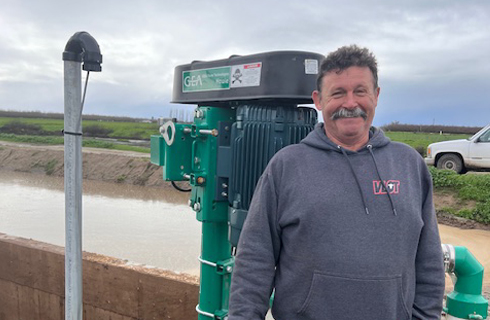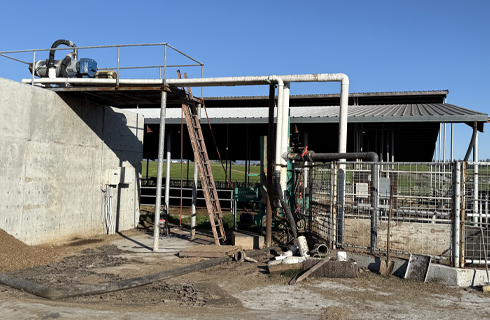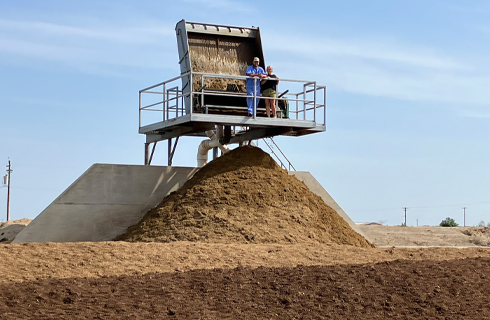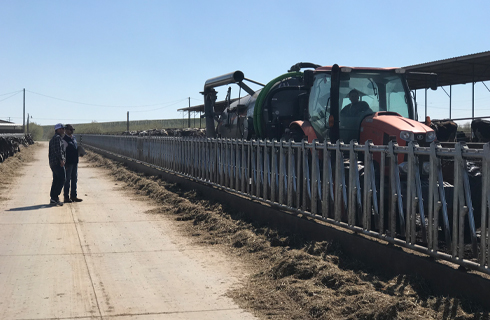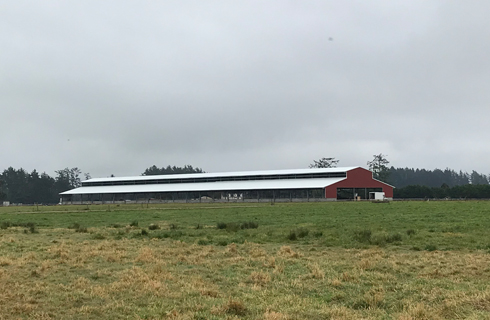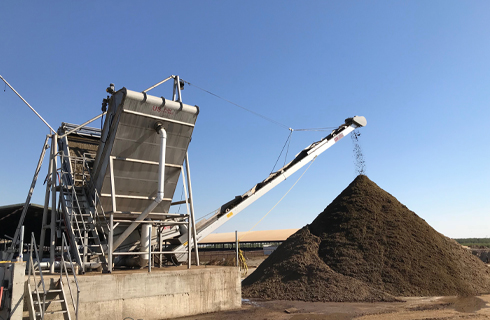About the Alternative Manure Management Program
CDFA’s Alternative Manure Management Program (AMMP) provides financial assistance for the implementation of non-digester manure management practices on dairy and livestock operations in California that reduce greenhouse gas emissions. The program supports several project types focused on handling and storing manure in environmentally responsible ways, with the goal of limiting how much manure ends up in liquid, anaerobic environments where its decomposition produces methane.
Eligible practices include:
- Pasture-based management
- Alternative manure treatment and storage, such as compost bedded pack barns
- Solid separation
- Conversion from flush to dry scrape manure collection
The variety of alternatives to anaerobic digesters offers accessible, cost-effective options that can be scaled to dairy and livestock facilities of any size, across a wide variety of management styles and locations.
Benefits: these practices can combat climate change, help operations reduce their environmental footprint, and foster agricultural resilience. While direct implementation can lower manure methane emissions on farms, projects can also reduce the risk of water pollution, enhance local air quality, and improve a farm’s ability to recycle manure as natural fertilizer or compost for healthier soil. AMMP supports California’s goal to cut methane emissions to 40% of 2013 levels by 2030, offering a significant opportunity for producers to adopt innovative manure management solutions that enhance sustainability and environmental stewardship across the industry.
Impact
As of December 19, 2025, 73% of AMMP's incentive projects have been completed.
- AMMP Program-Level Data of Executed and Funded Grant Projects
- AMMP Project-Level Data of Executed and Funded Grant Projects
Grant Solicitations
The 2024 AMMP solicitation is closed. Applications were accepted from July 23 to October 18, 2024. CDFA received 70 applications requesting a total of $50.7 million in grant funds.
In April 2025, CDFA awarded 25 projects for the 2024 AMMP grant round, totaling $17.42 million in grant funding. In December 2025, CDFA was able to award 5 new projects following the passage of SB 105 (Chapter 104), which amended the Budget Act of 2025 and appropriated some additional funding to the livestock methane reduction programs. The updated list of awarded projects is available: 2024 Awarded Projects.
Program Timeline
| Item | Estimated Time Frame* |
|---|---|
| Application Period | July 23 - October 18, 2024 |
| Review Process | October 2024 - January 2025 |
| Award Announcement | February - March 2025 |
| Grant Term for 2024 Projects Begins | June 2025 |
* Subject to change
Past Solicitations
For reference materials, applicant and awardee lists from past grant solicitations, visit the AMMP Archives page.
Types of Projects Being Funded
Incentive
Incentive projects support the on-farm implementation of eligible non-digester manure management practices, including pasture-based management; alternative manure treatment and storage (such as compost bedded pack barns); and solid separation or conversion from flush to scrape in conjunction with some form of drying or composting of collected manure.
Demonstration
Demonstration projects were considered for funding in 2019 and 2020. More information can be found on the AMMP Demonstration Project page.
Success Stories
Loading...
Loading...
Program Status
Technical Assistance
One-on-one technical assistance is available and free to dairy and livestock operators interested in applying for the AMMP and to assist grant awardees with project implementation. Contact information for these providers can be found in the resources below.

